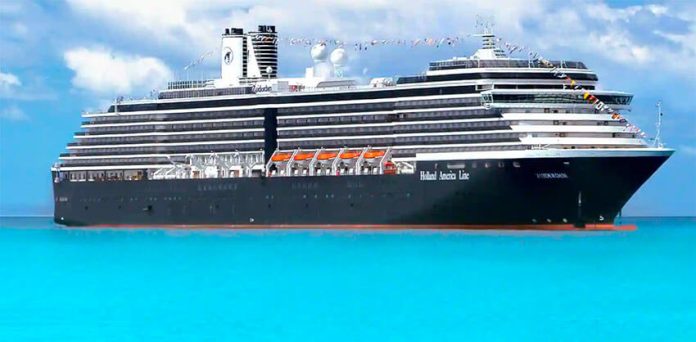Cruise ships that request to dock at Mexican ports will be allowed to do so even if people on board have COVID-19, the federal government said Tuesday.
The announcement came after Jalisco authorities recently blocked two ships from docking on that state’s coast.
“The ministries of Health and Tourism of the Mexican government reiterate their commitment to respect what is established in the International Health Regulations of the World Health Organization (WHO), and consequently cruise ships will be welcomed in the country’s maritime ports,” the ministries said in a joint statement.
They said that people with symptomatic COVID-19 or who have tested positive for the disease will be given medical care if required.
People who have tested positive but have mild or no symptoms will be required to remain in “preventative quarantine” while the ship on which they are traveling is docked, the ministries said, while those with serious symptoms will be taken to hospital.
Passengers without COVID can proceed with their onshore tourism activities as long as they follow virus mitigation protocols, the statement said.
“… Our country upholds its policy of solidarity and fraternity as well as the principle of non-discrimination toward all people,” the ministries said.
They said that a cruise ship that wasn’t allowed to dock in Puerto Vallarta would be welcomed in Guaymas, Sonora, “with the support of the government of that state.”
The ship, the MS Zuiderdam, docked in Guaymas on Tuesday. Sonora Health Minister José Luis Alomía said that 28 crew members and two passengers had COVID and were isolating in their cabins. About 400 passengers who disembarked were subjected to temperature checks and some were given rapid antigen tests.
Alomía said that no additional COVID cases were detected and the passengers who left the ship didn’t pose a risk to the community. The Zuiderdam, which left San Diego on December 23, had previously docked in Cabo San Lucas, La Paz and Loreto.
Meanwhile, Sinaloa Health Minister Héctor Melesio Cuén Ojeda said Tuesday that two cruise ships slated to dock on that state’s coast wouldn’t be allowed to do so because they were carrying people infected with the coronavirus. One of those ships is the Zuiderdam, which was scheduled to dock in Topolobampo on Wednesday.
The other is the Carnival Panorama, which was due to dock in Mazatlán on Tuesday but has at least 81 infected crew members and passengers on board. It was also previously prevented from docking in Puerto Vallarta.
Cuén said the decision to block the arrival of the ships came after Governor Rubén Rocha advised him to put residents’ health ahead of tourism and followed a virtual discussion with representatives of the cruise lines on Monday. He stressed that COVID-free ships are welcome to dock on the state’s coast.
The health minister also announced plans to conduct random COVID-19 tests on international air passengers arriving in Sinaloa airports.
“It’s very important to mention that the prevention protocol for this new variant omicron is exactly the same as that for the delta variant,” Cuén added.
“Using a face mask is very important whether you’re vaccinated or not because we have to remember that the vaccine doesn’t protect us 100%,” he said.
With reports from El País, El Universal, El Financiero and La Jornada
